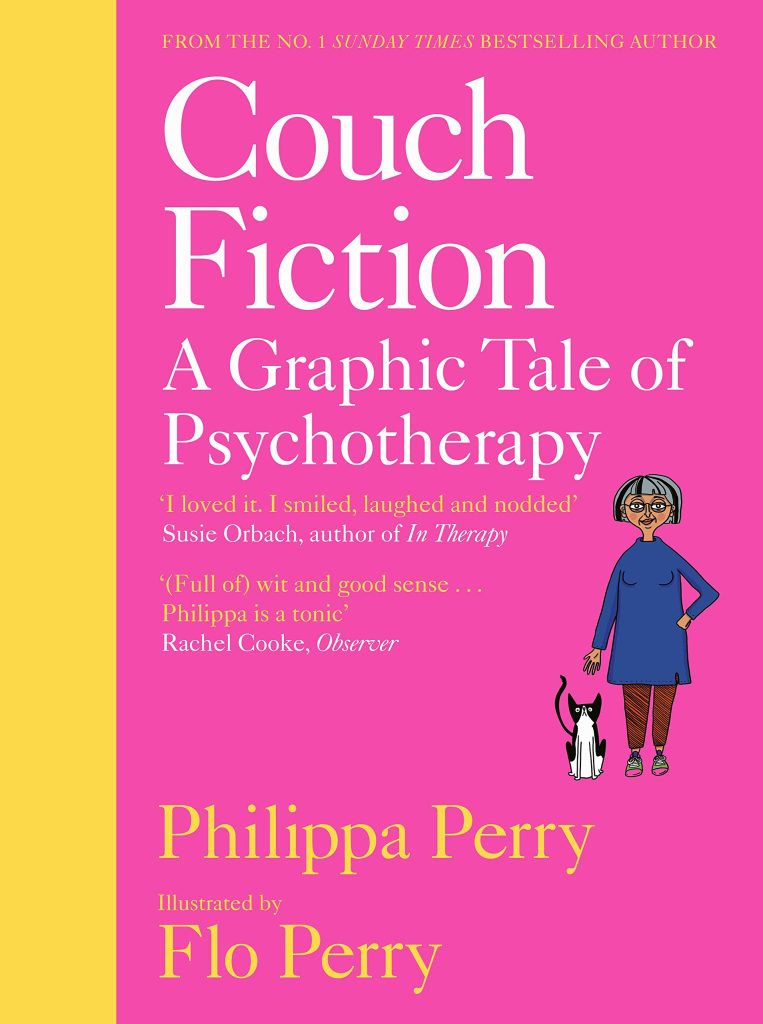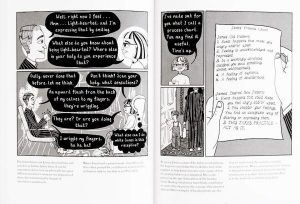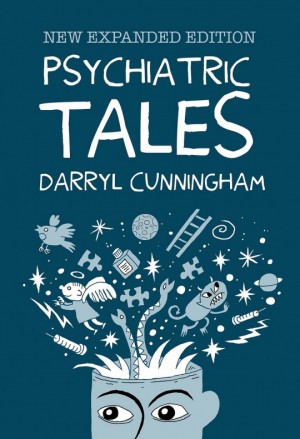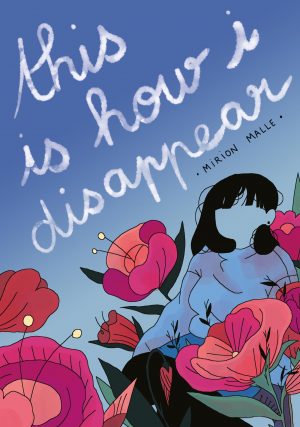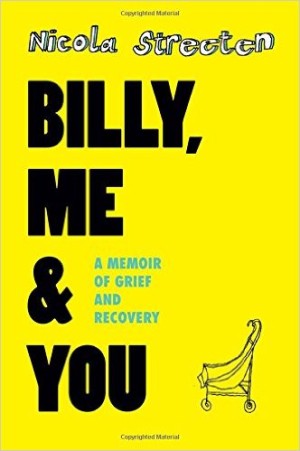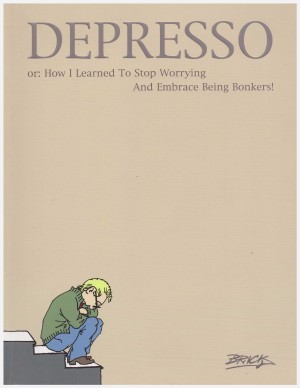Review by Ian Keogh
This second edition of Couch Fiction is a rarity in the comics world for presenting the same text as the 2010 version*, but with completely different artwork, and a switch from a Macmillan imprint to Penguin.
As before, it’s an investigation of the psychotherapy process, and takes an interesting approach to comics by having the associated thoughts of author Philippa Perry at the bottom of each page supplied as text. These can be as focussed as noting the techniques of the psychotherapist or as random as wondering about the contents of recycling bins on their doorstep. As Perry says in her introduction, though, these can be ignored, although anyone who does so will miss half the experience.
Psychotherapist Pat takes on new client James. The process is founded on honesty, but while James says he’s a successful barrister, despite his voluntarily attending therapy sessions he’s barely forthcoming as Pat tries to coax him out. The unusual aspect is that along with the talk Perry reveals what Pat and James are thinking, adding an extra level of uncertainty to an already fraught process, and it’s completely captivating.
Or would be if not for the new artwork, the redrawing required to facilitate the change of presentation from landscape to portrait. Finding comments online referring to Flo Perry’s art as “beautiful” isn’t difficult, but readers may beg to differ. It’s heavily stylised, with stiff, two dimensional figures lacking any emotional investment, and proves a constant distraction as another awkwardly drawn person manifests. Perry does remove the distance between the author and the fictional Pat by drawing her to resemble her mother more greatly. In terms of conveying the necessary content, though, the original version was far more efficient.
Perry is a psychotherapist herself, and brings her professional knowledge to bear following James’ consultations from start to completion, and laying it bare might surprise sceptics. One mention that may disturb is how it’s taken for granted the subject can form an attachment to their therapist. It’s also clear that breaking down mental barriers to get at the truth of why someone behaves in a certain way isn’t going to be achieved in a single £60 session. The process is gradual, requires honesty inside and outside the consultation, and follows stages a psychotherapist can predict. In James’ case 43 sessions are noted.
Thought balloons have become a derided shorthand in modern comics, now largely replaced by first person captions, yet they’re integral to Couch Fiction. A door is opened into a previously undisclosed world for people who’ve never undertaken therapy, and those who have will achieve new insight via the revelations as to what Pat is thinking as she consults with a client. Perry’s notes beneath increase the understanding. The result is innovative use of comic form as an educational tool, but nowhere near as effective as the original edition.
* Perhaps there may be a few minor modifications, but confirming one way or the other would require comparing both books line by line.
